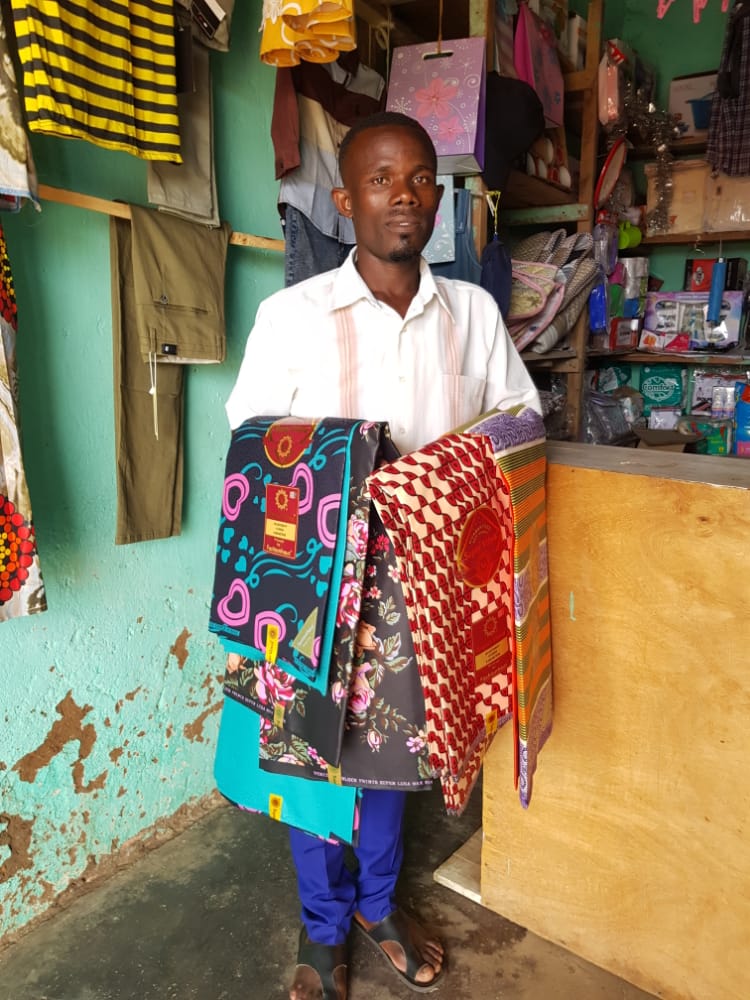
Continuing our series of articles from our Annual Report 2020/21, we outline here our work on our Empowering Vulnerable Genocide Widows in Karongi District to Alleviate Extreme Poverty (EVKEP) Project.
SURF was awarded a grant of CHF 89,250 by the Addax & Oryx Foundation to deliver, in partnership with AVEGA Agahozo, the Empowering Vulnerable Genocide Widows in Karongi District to Alleviate Extreme Poverty (EVKEP) Project. The project ran from May 2019 to December 2020.
The overall objective of the project was to empower 400 vulnerable genocide widows and 1,200 of their dependents in Karongi District by alleviating extreme poverty, reducing vulnerability, and improving food security and sustainable energy use. During the life of the project, 770 vulnerable genocide widows received livelihoods and counselling support (200 received both livelihoods and counselling support, 200 counselling support only and 370 livelihoods support only – with 346 also receiving either a solar lamp, clean cookstove or kitchen garden), and as a result, 2,606 dependents benefited from the project through the increased income, well-being and food security of the households.
At the beginning of the project, we started work in 8 sectors of Karongi district due to their geographical proximity, and later added 3 more sectors to then be working in 11 out of 13 sectors of Karongi district. The 2 sectors which were not reached through the project were those which were most rural and isolated, which due to travel restrictions proved difficult to deliver project activities as originally planned in 2020.
Even still, the project significantly exceeded the numbers that we targeted to reach, and despite the challenges over the past year resulting from COVID-19 we have been able to evidence significant positive impact of doing so.
77% of beneficiaries report that they are better able to financially support their families. That result could have been even higher, were it not for COVID-19 which significantly affected many of the small businesses last year as a result of the lockdown which restricted movement and travel and thus customer numbers, and non-essential businesses being ordered to close for a time. Distribution of kitchen gardens, solar lights and cooking stoves met the project targets resulting in improvements in food security, and reduction in household expenditure on fuel, which contributed to better health outcomes. This was complemented by the access to the counselling which resulted in a reduction in vulnerability resulting from poor mental health and more positive outlook contributing to better well-being.
SURF and AVEGA agreed to commit funding to maintain the project staff for a further period of three months (through to March 2021) to then enable further follow-up of beneficiaries, in particular those who have taken loans from Urwego Bank through the LGF facility to ensure that we maintain the 100% repayment rate of the project. The expectation is that once beneficiaries have paid back the loans, they will then have the credit history to be accepted as regular clients of Urwego Bank – and in a position to independently apply for loans (thus sustaining the positive impact of the project).
Byukusenge *
Byukusenge is one of the youth dependents who participated and benefited from the project. His household received a solar light, and he was able to attend entrepreneurship training. After he completed the three-month programme of training, he managed to secure a loan from Urwego Bank to strengthen his business.
He is in apparel, travelling to neighbouring DRC and buying clothes there, and selling them in local markets. Through his business, Byukusenge is now able to make 50,000 Rwf (CHF 57) a monthas profit after paying his loan and deducting all his expenses. This is double the income that he was generating before joining the project. Through the training received, he is able to count and record every transaction to be able to manage the finances of the business more accurately and to track his profit.
Byukusenge received a first-round loan of 200,000 Rwf (CHF 228) through the LGF at Urwego Bank and repaid it back without any delay. He has now received a second loan of 250,000 Rwf (CHF 285) and repayment is ongoing. He comments: “Today I can say my life has changed since I joined this project. I am extremely happy as to what I have achieved since we started. I am among the young persons in my group, which mainly consists of older people. As youth, we learn a lot from these widows especially to be loyal and committed to whatever we are doing. This is the reason I have decided to take a loan and ensure that I am able to pay it back, since the old widows are able to do so – then I should and am inspired to do so too. I have continued my business but due to the COVID-19 pandemic, which has restricted travel to DRC, I have now diversified into selling crops so that I can continue to make repayments in good time.”
